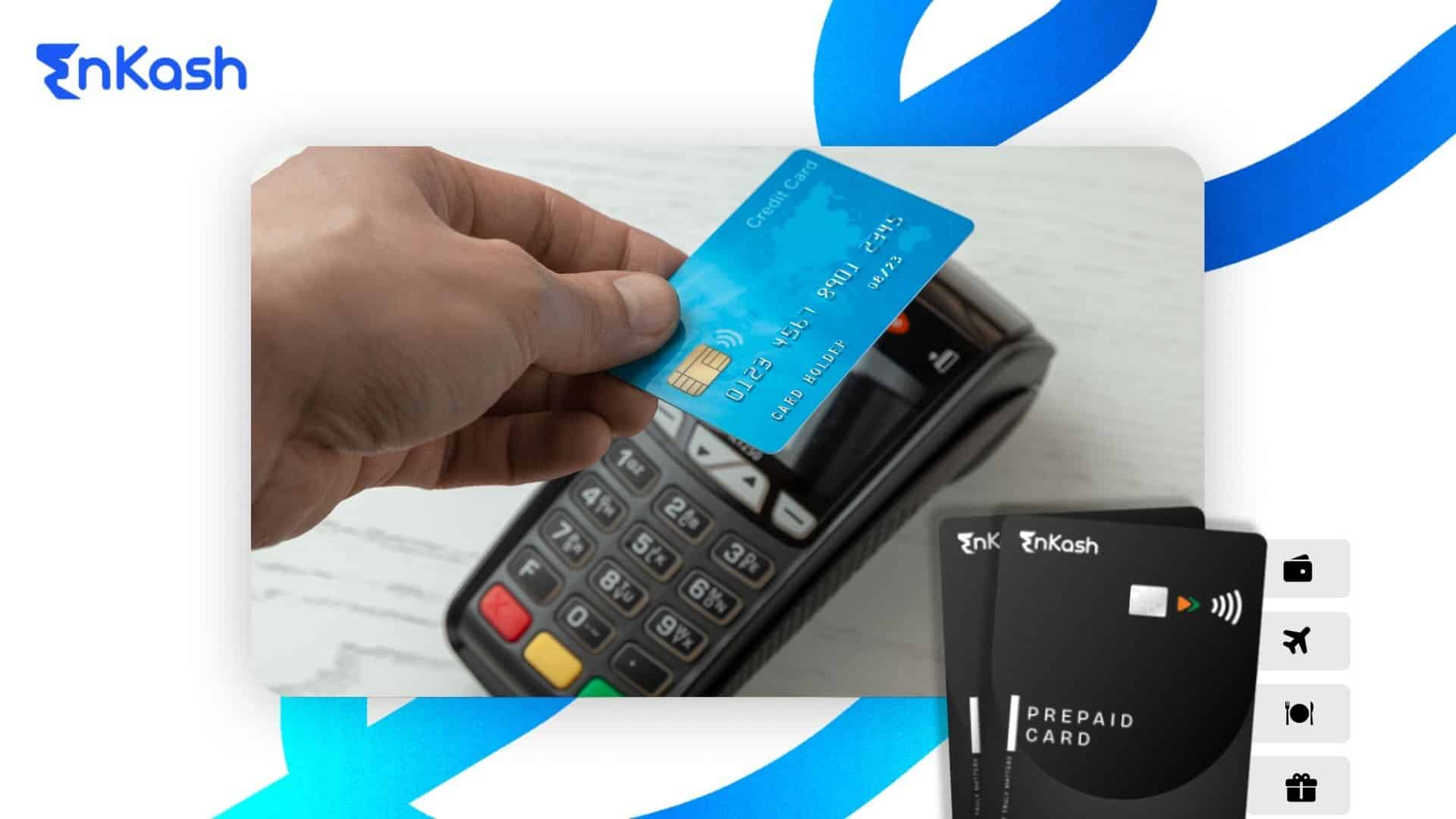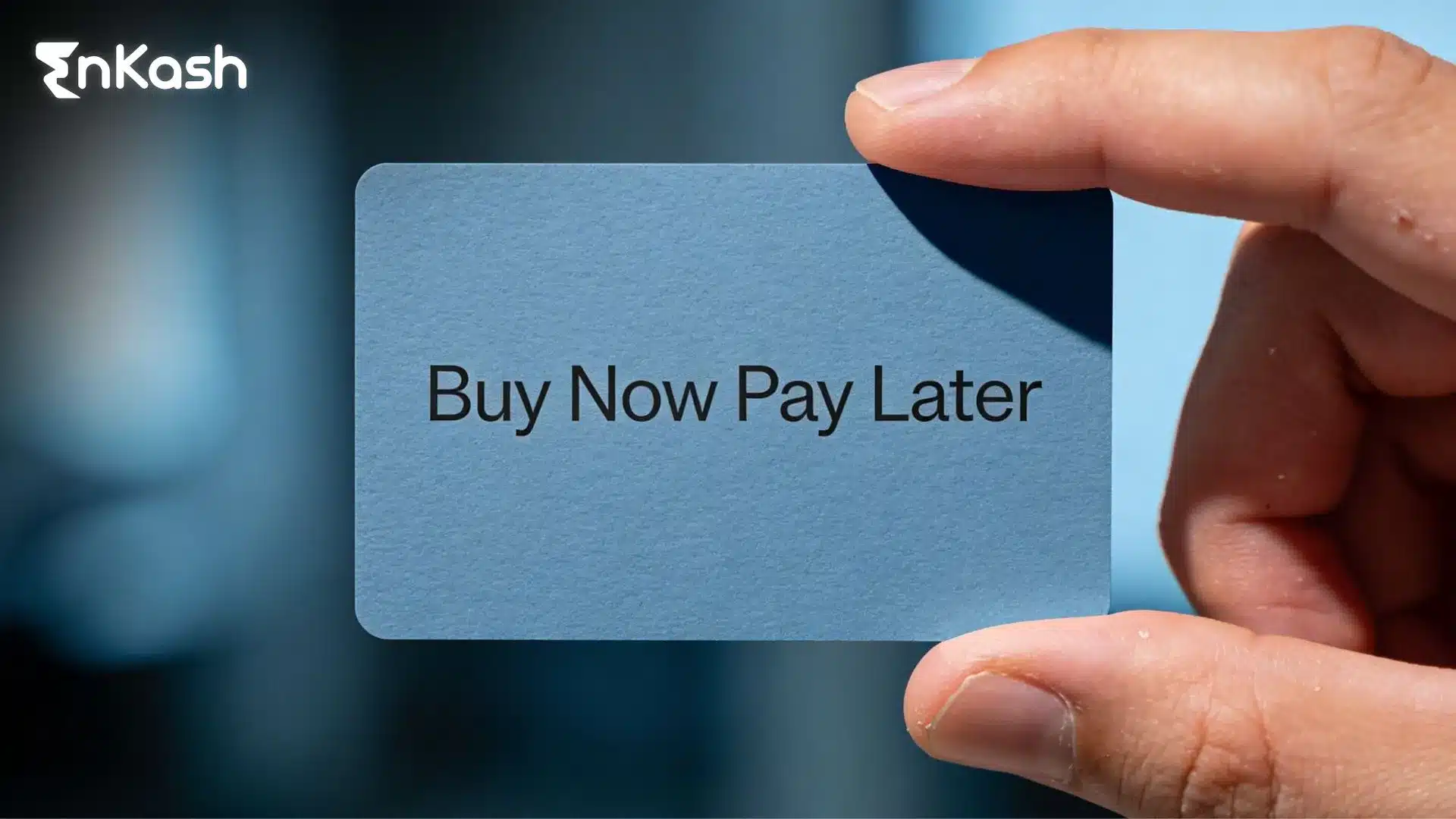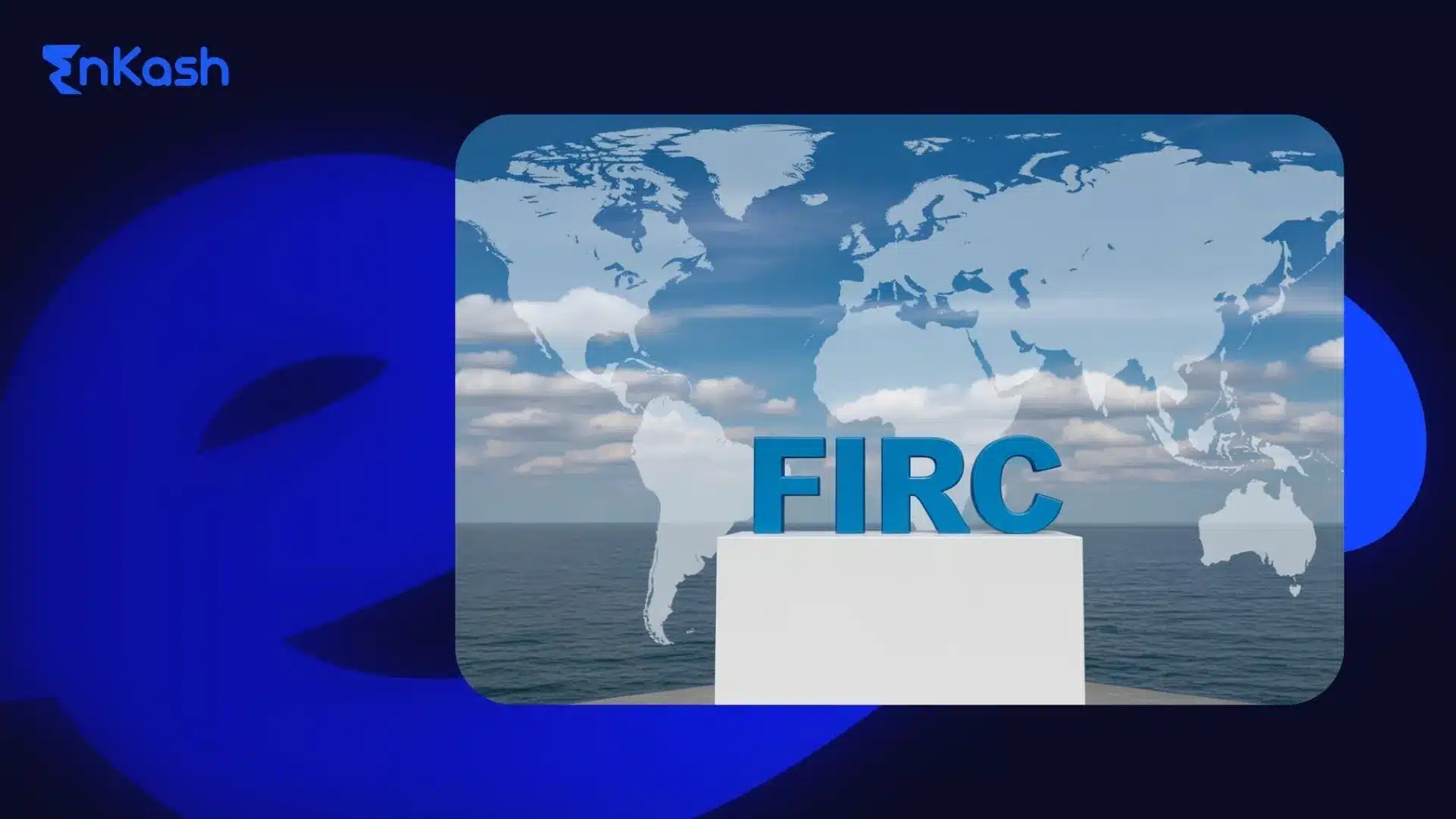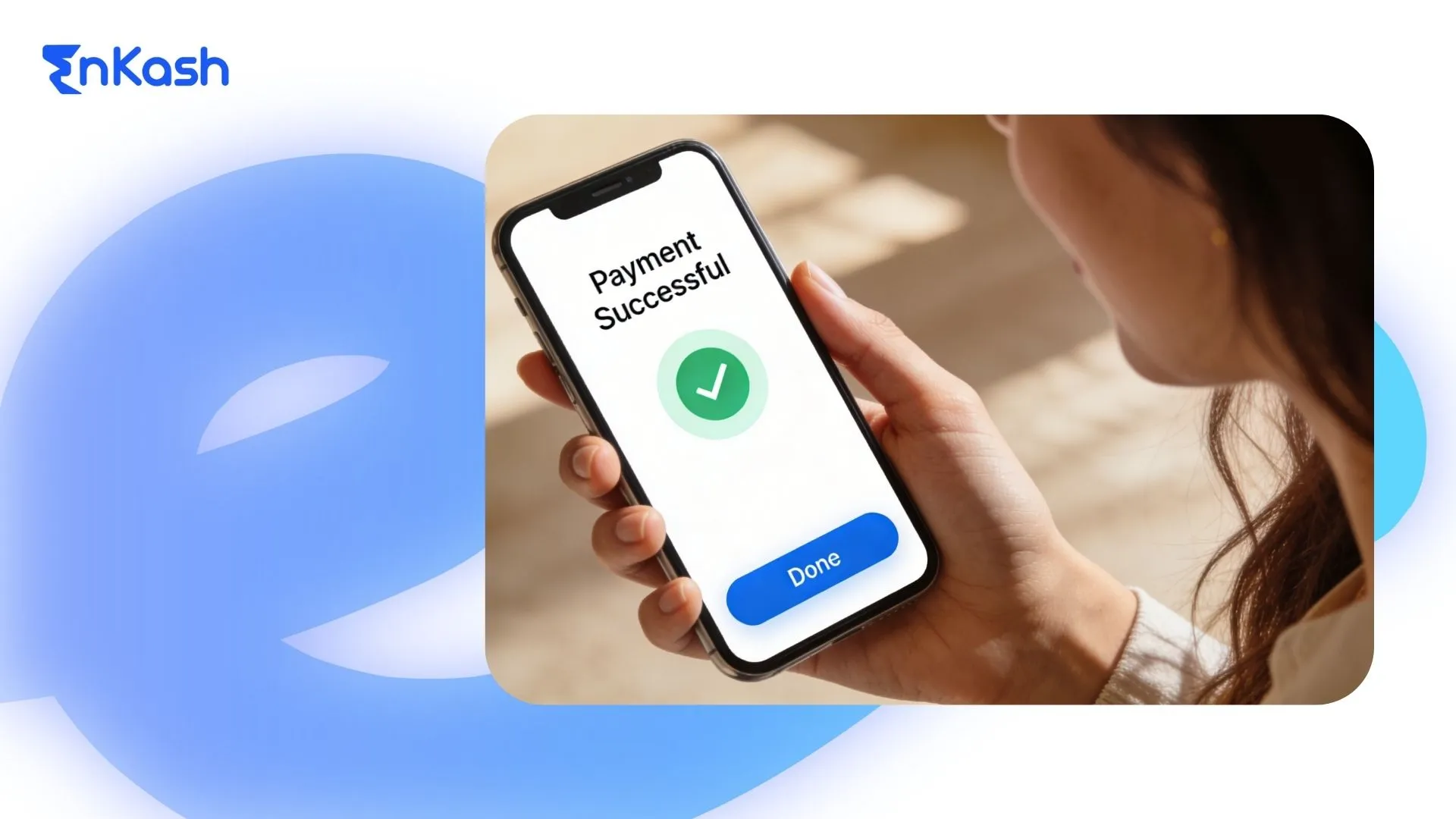Introduction
With India embracing digital transformation at a fast pace, the way individuals and organizations transact is also evolving. Prepaid Payment Instruments, smart financial tools enabling advances and payments in a seamless, secure manner, are one such instrument that is changing the world of payments.. From mobile wallets to metro cards, prepaid payment instruments are changing the way money is spent, transferred, and tracked. We at EnKash, the leading spend management platform in India, empower businesses with multiple types of PPI to help them with expense control, compliance, and digitization of the entire financial operations landscape. But first, let us understand what a PPI is, how it functions, and what kind of options are available in the Indian market today.
What Are PPI Instruments? Meaning and Regulatory Overview
In today’s fast-paced and digitally influenced economy, both businesses and individuals are always in search of payment systems that are simple, secure, and flexible. And one such creation that has gained significant traction among its population is the Prepaid Payment Instrument. But what are PPI instruments, and why are they so important in the Indian financial landscape? PPI instruments are financial instruments that enable users to “preload funds” with the value of money, ahead of time, to be used later to make purchases or transactions. The basic premise of the prepayment model ensures that a user can only spend the amount loaded on the instrument, giving the consumer better control over spending. PPIs are fast becoming the norm for purchasing groceries, paying bills, issuing benefits to employees, and minimizing the need for manual reimbursements. Such instruments are useful for restricted, pre-approved spending, for instance, budgeting, gifting, or travel.
The RBI, the apex banking institution in the country, has regulated the use of PPIs under the Payment and Settlement Systems Act to ensure that PPIs are used safely, and licensing, operational guidelines, KYC compliance, transaction limits, and data security are framed accordingly. Anybody issuing PPI in India would have to abide by the set of guidelines to ensure that the system brings a level of accountability and financial transparency. For businesses, especially those that handle large teams or require decentralized spending control, EnKash’s PPI solutions offer a significant advantage. With EnKash, companies can issue prepaid instruments such as expense cards, gift cards, or wallets to employees and teams with pre-set limits. These cards can be configured to allow or restrict specific transaction types, enable real-time expense tracking, and eliminate the need for manual reimbursements. This makes PPI instrument management easy and efficient by using automation, reporting, and compliance-ready features.
Understanding the 3 Basic Kinds of PPI Instruments in India
According to the RBI, the types of prepaid payment instruments are categorized into three broad categories, each with a distinct use case and corresponding regulatory framework. These are Closed System PPIs, Semi-Closed System PPIs, and Open System PPIs. Each category is suited to a specific use case and regulated according to the risk level associated with the nature of transactions.
1. Closed System PPI
A Closed System PPI is essentially issued by an entity for consumption in its own platform or service network. As an example, a retail chain may issue some prepaid gift cards or a wallet whereby the card or wallet can be used only at its stores or its website. Such instruments are not permitted to be used at third-party merchants, nor do they provide for fund transfers or withdrawals in cash. These instruments are restricted in usage and limited to the issuer’s own platform or network and, thus, do not require authorization by the RBI, subject to certain conditions. Hence, these are a simple set of instruments meant for internal transactions or loyalty programs while, unfortunately, lacking the ability to address any broad financial need.
2. Semi-Closed System PPI
The Semi-Closed-System PPI is one of the most commonly used forms of payment in India. These can be used at a predefined set of merchant establishments that the issuer contracts to accept the payment. While such payments do not entail cash withdrawal or fund transfer to other cards or accounts, they allow more flexibility as compared to those under the closed PPI. Such semi-closed PPIs are ideal for companies that want to provide controlled financial instruments to their employees, vendors, or field staff. Semi-closed PPIs can be used for bill payments, shopping, and business expenses. Depending on the KYC status, usage limits vary as per RBI regulations.
3. Open System PPI
The most flexible variety is the Open System PPI, which may be issued only by banks. These instruments are permitted to be used for any kind of financial transaction, including purchases at any merchant (online or offline), cash withdrawal from ATMs, and transfer of funds. Open PPIs function more or less like regular debit cards, but the facility is limited to getting cashed out up to the prepaid amount. They serve all full-service financial needs and provide the most flexibility and accessibility. However, with more freedom comes greater regulatory requirements about full-KYC compliance as well as transaction monitoring.
Common Examples of PPI Instruments
Prepaid Payment Instruments (PPI) have transcended transactions and become a means of convenience for a person. Yet all types of PPI instruments must serve certain purposes in respect of PPI services for corporations. Through EnKash-backed PPI solutions, businesses can issue any number of instruments, starting from mobile wallets to meal cards, gift cards, and e-vouchers, thereby offering users complete control over expenditures and better financial planning.
Mobile Wallets
Mobile wallet holds top ranks among the various prepaid payment instrument types available in India today. In simple terms, such digital tools allow users to virtually store money and use the same either for mobile recharge, utility bill payments, online shopping, or even for in-store purchases. Common examples include EnKash Wallet, Paytm, and PhonePe. In effect, mobile wallets facilitate employee reimbursements while enabling teams to spend under controlled parameters. Mobile wallets created via EnKash can be immediately supplemented with merchant categories, usage restrictions, and real-time tracking. It makes for an ideal solution in cases of dispersed teams or a digital-first company.
Meal Cards
Meal cards form one of the other important PPI tools in India. Primarily issued by employers, the idea is to cover the food expenses of employees, all the while allowing the employee the benefit of permitted tax deductions as per Indian income tax laws. These are semi-closed prepaid payment instruments that work at a huge range of food merchants, including restaurants, cafes, grocery stores, and online food delivery platforms like Swiggy and Zomato. EnKash meal cards come with category controls of spending, merchant acceptance, and expiry controls for proper use of allowance. Meal cards are suitable for companies wishing to enhance employee satisfaction, encourage tax compliance, and reduce manual accounting linked with food reimbursements.
Gift Cards
Gift cards would be the perfect way to appreciate and reward employees, to reward customers, or to create fun engagement campaigns. These cards in prepaid denominations are loaded with fixed amounts and can be used by anybody to make purchases until the balance is exhausted.
They are flexible and highly customizable. Businesses can issue gift cards through EnKash with settings for usage like one-time, spending limits, expiration, and merchant category locks.
Gift cards are omnipresent in the world of commerce; they may be given during festivals, celebrations of company milestones, or a loyalty campaign, making them versatile and cheap tools for any corporate toolbox.
E-Voucher
An e-Voucher can be thought of as a modern, digital sibling of the traditional gift voucher. They may be sent straight away through mail, SMS, or mobile apps, and hence are perfect short-term interaction tools for rewarding customers in promotional programs, referrals, contests, or digital ad campaigns. They function as semi-closed PPIs, usable at selected merchant outlets or platforms designated by the issuer. Through EnKash, a company can issue bulk vouchers on demand with customized values, usage tracking, and expiry times.
These digital vouchers eliminate the cost of printing and logistics, thus providing an intelligent solution for organizations striving for efficiency and branding.
Why PPI Instruments Are Vital for a Cashless India
India’s journey toward becoming a cashless economy has accelerated over the past decade, powered by rapid digitization, rising smartphone usage, and government-backed initiatives like Digital India. Let’s understand why prepaid payment instruments are crucial for building a cashless, inclusive, and digitally literate India.
Acting as a Bridge Between Cash and Digital Transactions
They thus serve as a bridge for cash users to interact with digital payment systems. Once cash is converted into digital value through PPIs, users in remote or underserved areas gain access to digital financial services without needing a bank account. They get access to online services without virtually ever having to open an account with a bank.
Increasing Financial Inclusion
Since many mobile wallets, prepaid cards, and e-vouchers are made available to users without the prerequisite credit history, PPIs can still be considered one of the major aids supporting financial inclusion, and they serve gig workers, students, small vendors, and rural populations.
Encouraging Responsible Spending
PPIs enforce the philosophy of “load first, spend later”; hence, users become more conscious of how they spend their money unlike credit cards. This inculcates the thought of budgeting and controlling expenses, particularly in young people or those who are digital spenders for the first time.
Enhancing Digital Literacy
The onboarding process, the use of mobile apps, and real-time tracking with prepaid payment instruments enable a novice user to develop comfort in the online financial tools. This nurtures digital payment literacy and encourages the transition of people from cash-based to card/mobile-based transactions.
Enabling Government Programs
The Government of India’s push for a less-cash economy and digital benefit transfer is deeply supported by PPI systems. Whether welfare is being given through prepaid cards or UPI-linked wallets are being given as payment, PPIs ensure that public services are better organized.
Enabling Businesses and Startups
Solutions like EnKash offer scalable third-party PPI options for businesses to issue corporate cards, manage expense reimbursements for their teams, and launch digital rewards programs—all geared to promote a cashless economy.
The Rise of Contactless PPI in Transportation
Urban transportation in India is away toward rapid digital transformation, and PPIs form the very core of this transition. The growing demand for quick, safe, and convenient solutions for public commuting has given rise to contactless transit and metro cards that form the backbone of digital fare collection. These PPI instruments, in either a closed-system PPI or semi-closed-system PPI format, allow a commuter to pay for access to the metro, buses, and toll booths without any cash or physical ticket, and fill in the missing link toward the vision of smart cities and a cashless economy in India.
Transit and MetroCards are prepaid instruments designed exclusively for transportation. Usually, certain amounts of money are preloaded onto these cards and are used for small, high-frequency transactions—daily metro rides being a major example, and toll payments might be one more. Since prepaid cards are payment instruments that limit spending to the loads put on them, they give customers control and avoid any fare payment delays. Unlike in the case of open PPIs, which are accepted universally across locations, these cards are only accepted and can be used within a specific system-like a particular metro rail or bus network-making the cards closed or semi-closed PPIs. Some of the commonly used PPI instruments in India comprise the Delhi Metro Smart Card, Mumbai Metro One Card, and RFID-based bus/toll cards issued by different authorities in various states. These cards are recognized at entry and exit gates, are easily rechargeable using kiosks, UPI, or mobile wallets, and by doing so, facilitate smooth commuting for millions of passengers every day.
One of the biggest advantages of contactless transit cards is the tap-and-pay functionality, which significantly reduces waiting time during peak hours. Balancing speed with convenience and user-friendliness, these PPIs reduce queuing, avoid manual fare collection, expedite passenger disembarking, and its greatest in post-pandemic life: hygienic, while avoiding the risks associated with handling cash or unnecessary contact. They also help retain valuable commuter data, which can be useful for authorities in planning better routes and optimizing public transport systems. As India is fast-agglomerating itself in the areas of digital governance and urban innovation, the transportation angles of contactless prepaid payment instruments may find greater roles, helping seamless, secure, and smart mobility across the nation.
Conclusion
The evolution of prepaid payment instruments in India brought about a transformation in the way people and businesses dealt with money. From closed system PPI designed for use within a brand’s ecosystem to open system PPI providing ATM access and merchant interoperability, each type caters to a different need. This is the very essence of what EnKash empowers companies to deliver. Be it gift cards, meal cards, semi-closed prepaid payment instruments, or reloadable wallets. With controls in place, real-time tracking, and easy issuance, our PPI solutions help keep your financial activity running smoothly, safely, and compliantly.










